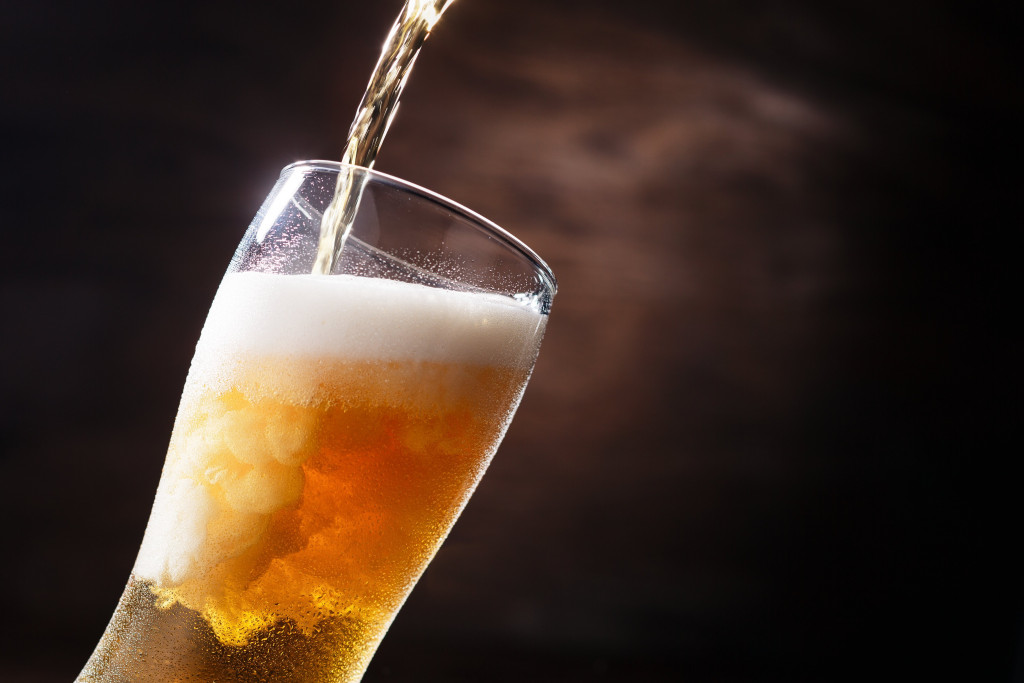Some people don’t realize that they have a drinking problem until they start to suffer from the consequences. You don’t have to be a day drinker or consume entire bottles in one sitting to be considered an alcoholic. If you constantly binge drink on the weekends, turn to alcohol after a stressful day at work, or don’t see social events as “fun” unless there’s alcohol present, then you may already be in the early stages of alcoholism.
Whether you are already undergoing alcoholism treatment and recovery or just want to cut down on your drinking, here are some of the best lifestyle modifications that can help you achieve your goals:
1. Engage in hobbies
Boredom is a common cause of alcohol overuse. If you always find yourself with a drink in your hand when you can’t find anything better to do, replace that habit with productive hobbies such as art, cooking, baking, or reading. Not only are you distracting yourself from the urge to drink, but you’re also making better use of your free time as well as building your skills.
2. Ban alcohol from your house
Don’t keep a stock of alcohol in your house. If you’re trying to cut down on drinking, only buy alcohol during special occasions and when there are other people to share it with. But if you’re recovering from alcohol addiction, it’s best to not keep alcohol in your house at all. If you have a collection of bottles that you want to preserve, consider keeping them at a loved one’s house so that you aren’t always reminded of their presence.
3. Find other things to do with your friends
If drinking is a common pastime between you and your friends, try to find something else to do while you’re together. People tend to consume too much alcohol in social settings, especially when in the presence of people you’re closest to. Hence, finding other activities to do together is an excellent way to cut down your drinking.
However, you can’t ban your friends from drinking alcohol when you spend time together (unless you want to be that friend). If they are going out for drinks or drinking at someone’s place, consider opting out or otherwise limiting your drinks if you decide to come. It’s also important to let them know that you are cutting back on your drinking so that they don’t pressure you to drink.
4. Avoid places that serve alcohol
It can be tempting to indulge in a drink or two when eating out, especially when the place you’re eating at has special promotions on drinks. That said, it’s a good idea to avoid places that serve alcohol entirely if you think you can’t control your temptations just yet. If you’re going out with others, try to suggest a place that doesn’t serve alcohol.

5. Find healthy coping mechanisms
For many people with drinking problems, alcohol is a means to cope. At the end of a bad day or in the middle of a stressful event, alcohol can provide comfort and serve as an effective distraction. Thus, if you start using alcohol as a way to cope with negative events in your life, it is easy to become dependent on it.
Instead of turning to alcohol to cope, find healthier alternatives like exercising, meditating, listening to music, praying, or spending time with loved ones. Coping mechanisms don’t even have to be productive–as long as they help you deal with what’s bothering you in a healthy manner, they are good enough.
6. Exercise
Regular exercise keeps you in shape and reduces the symptoms of depression. It’s a healthy coping mechanism for life’s disappointments and is an effective distraction against drinking. For people who drink excessively, engaging in regular exercise can help reduce the desire to drink by serving as a source of stress relief as well as social interaction.
Aim to have at least 30 minutes of exercise each day, four to six times a week. Alternate cardiovascular exercise with strength training for best results.
7. Manage stress
Avoiding the sources of stress is a great way to reduce alcohol consumption, but it is not always possible. Thus, a better option is to learn how to manage stress in order to lead a more balanced life with less (or no) alcohol, as well as a reduced desire to drink.
Alcohol addiction can have severe consequences for one’s physical, mental, and emotional health. Don’t wait for your drinking problem to become a full-blown addiction; use these strategies to cut back on drinking (or eliminate alcohol entirely) and lead a healthier lifestyle.

